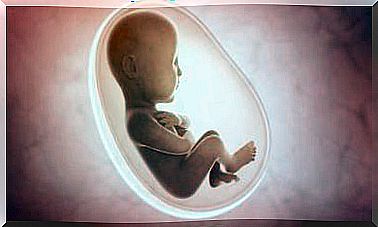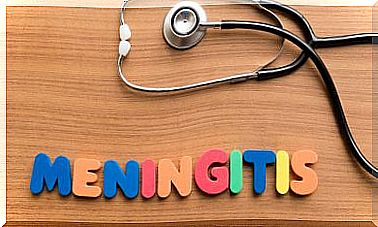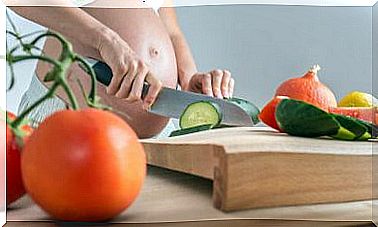How Much Vitamin C Does A Pregnant Woman Need Daily

Pregnancy is one of the most physically demanding stages for women, therefore there should be special attention to taking care of the diet and the daily intake of micronutrients such as vitamin C, since these are essential for the proper development of the baby.
It is even recommended that the contribution of some vitamins such as folic acid be increased in the months prior to conception, as this helps to avoid problems such as malformations in the neural tube of the fetus.
Vitamin C is one of the 13 essential nutrients for pregnant women, as it provides antioxidant protection against various diseases and protection against birth defects. Vitamin C increases immunity and also protects against anemia by helping the body absorb iron.
The recommendations of the World Health Organization on the energy intake of a pregnant mother are that it should be increased 150 Kcal during the first trimester of pregnancy and 350 Kcal in the rest of the gestation period.
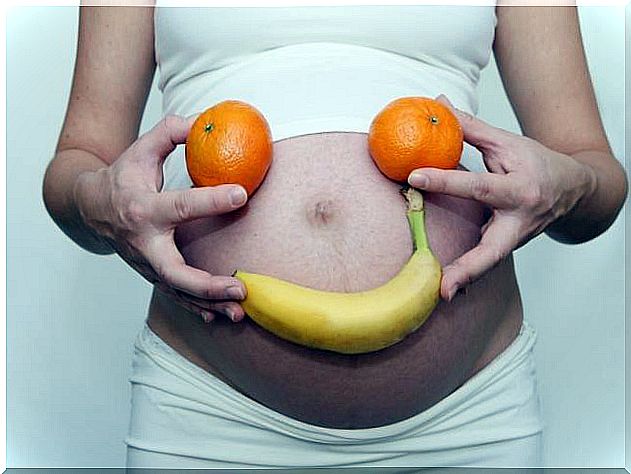
The daily consumption of fruits and vegetables is one of the key tools to maintain a balanced diet full of vitamins such as C and in which foods such as nuts, legumes, meats and fish cannot be lacking either, to include an adequate protein intake balanced.
Eat foods rich in vitamin C
Natural orange juice is a high source of folic acid that, combined with vitamins B-12, makes it possible for the pregnant mother’s body to better digest proteins and to generate new ones.
This is why the internal system of the pregnant woman is maintained with a good level of vitamin when she drinks a glass of orange juice daily. Consumption of vitamin C during pregnancy is considered safe at recommended doses between 80 mg and 85 mg for pregnant women 19 years of age and older.
For the correct daily absorption of iron, vitamin C comes into play as a fundamental part of this process. Increasing the consumption of foods high in this vitamin should be part of the daily diet of pregnant women. A glass of orange juice provides 60mg of vitamin C, 65% of the recommended daily intake.
But you should know that there are other foods richer in vitamin C than orange juice, such as:
- Citrus fruits: such as orange, lemon, grapefruit
- Other fruits like: kiwi, strawberries, melon, papaya, black currant
- Vegetables: red pepper, Brussels sprouts, broccoli and also parsley.
Another interesting fact for women concerned about stretch marks during pregnancy is the ability of ascorbic acid to build collagen. Collagen provides elasticity to stretched skin tissues as your belly grows during pregnancy.
On the other hand, it is very important to monitor this vitamin since pregnant women who do not receive the recommended amount of ascorbic acid have a greater risk of developing pre-eclampsia or severe eclampsia, disorders that cause an increase in blood pressure.
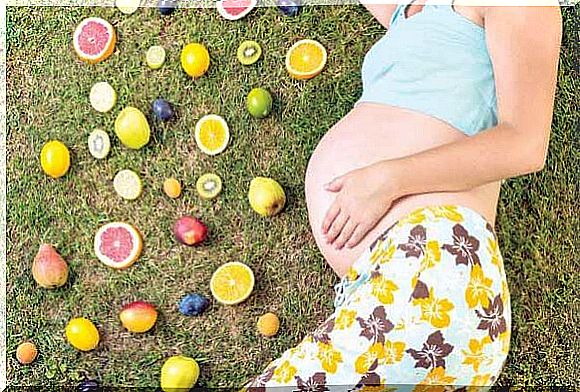
A good diet is key in pregnancy
Low levels of vitamin C are also associated with HELLP syndrome, a disorder in which pregnant women experience increased liver enzymes, low platelet counts, and breakdown of red blood cells, posing a danger to the mother. and for the baby.
Some mothers use multivitamin supplements that contain high amounts of vitamin C. These multivitamins are not considered safe during pregnancy as they contain too much vitamin C. The best vitamin C supplement during pregnancy is one that is specifically designed for pregnant women. and that it contains just the right amount of vitamins.
The best option for pregnant women is to eat a variety of fruits and vegetables, and make sure that you are eating at least one food rich in vitamin C every day, such as orange, kiwi, red pepper, or strawberry juice.
Also pregnant women at risk of high blood pressure should exercise caution in consuming ascorbic acid. It is advisable to consult with a doctor about the daily diet to determine if additional ascorbic acid is needed to fill the nutritional gaps during pregnancy or if the normal ingested dose is sufficient.
After delivery, nursing mothers need 115-120 mg of vitamin C per day. Ascorbic acid is excreted in human breast milk. The effects on the infant are unknown. Therefore, it is recommended to exercise caution in the excessive supplementation of vitamin C in women who are breastfeeding.




